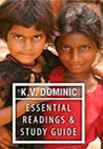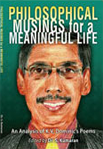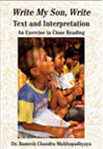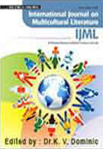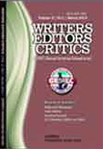Book Details
World English Fiction: Bridging Oneness (Edited Book)
Year Of Publish:
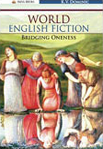
Contents
Â
A Quest for ‘the Otherness’ at the Crossroads of African Culture: A Study of Achebe’ Things Fall Apart and Arrow of God
–Monir A Choudhury
The Helpless Male: Breaking with the Traditional Male/Female Roles in C. J. Cherryh’s Pride of Chanur and Foreigner
—Krunslav Mikulan
Patriarchy and Racial Vulnerability: Love and Hate in Toni Morrison’s Love
–Mahboobeh Khaleghi
“Without Contraries Is No Progressionâ€: Pictures from Italy (1846) by Charles Dickens
–Elisabetta Marino
Dialectical Exhumation of the Past in Keki Daruwalla’s For Pepper and Christ
–Asha Viswas
R. K. Narayan’s The Dark Room: A Twist to Conventional Notions of Feminism
–Ketaki Datta
The Place of Women in an Ecological Dystopia: A Revisit to Atwood’s The Handmaid’s Tale
–Jubimol K. G.
Contemporary Resonance in the Select Novels of Amitav Ghosh and Rohinton Mistry
—Chikkala Swathi
Between Two Worlds: Reading Diaspora in Kavita Daswani’s The Village Bride of Beverly Hills
—Charulatha Ravi
The Vision of Freedom in Jhumpa Lahiri’s The Namesake andRabindranath Tagore’s Farewell My Friend
—Y. Vidya
Concerns within the Multicultural Mosaic: Henry Hwang’s F.O.B. as a Representative Chinese American Play
–Kavitha Gopalakrishnan
Love and Music: The Universal Emotion and Expression in Vikram Seth’s An Equal Music
—T. Ganga Parameswari
The Footsteps are Lost but Experiences Remain: A Critical Exposition of Silviu Craciunas’s The Lost Footsteps
—Aju Mukhopadhyay
Alienation and Mother Fixation in Stephen Gill’s Coexistence
Â
–Rupal Amyn Farista
Indian Omnipresence in Global Literature: Textualising the Diasporic Metaphors in K. S. Maniam’s The Return and Jhumpa Lahiri’s The Namesake
–Soumya Jose and Sony Jalarajan Raj
Â
Silence and Words as Means of Resistance: A Reading of Resistance to Subalternity in Leopoldo Lugones’ “Yzur†Using Western and Indian Aesthetic Theories
—Vani. K
Discourse in Chitra Banerjee Divakaruni’s Sister of My Heart
–V. Rajesh & J. Jaya Parveen
Journey from Self-alienation to Self-identification as Reflected in Shashi Deshpande’s The Dark Holds No Terrors
—Grishma Manikrao Khobragade
Exploring the Feminine Psyche–A comparative study of Zora Neale Hurston’s Their Eyes were Watching God and Shashi Deshpande’s Roots and Shadows
–S. Ambika
Gora: Tagore’s Formulation of the Spiritual Domain of Indian Nationalism
–Banibrata Goswami
Post Independence Political Scene as Presented in the Nigerian/African Novel
–Kiran Thakur
Emotional Crisis in Willa Cather’s The Professor’s House
–K. Rajaraman
Githa Hariharan’s The Thousand Faces of Night: Resistance to Patriarchy
–Sandhya Singh
Our Esteemed Contributors

